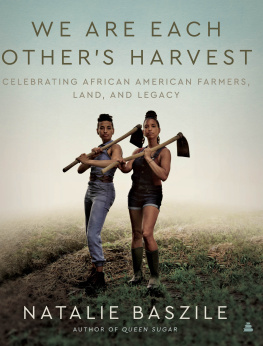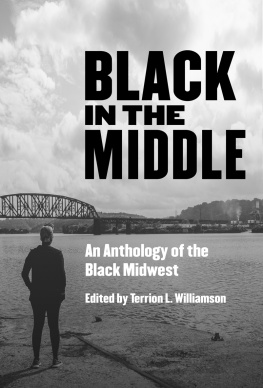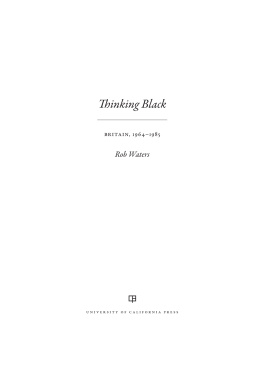Leah Penniman - Black Earth Wisdom: Soulful Conversations with Black Environmentalists
Here you can read online Leah Penniman - Black Earth Wisdom: Soulful Conversations with Black Environmentalists full text of the book (entire story) in english for free. Download pdf and epub, get meaning, cover and reviews about this ebook. year: 2023, publisher: HarperCollins, genre: Politics. Description of the work, (preface) as well as reviews are available. Best literature library LitArk.com created for fans of good reading and offers a wide selection of genres:
Romance novel
Science fiction
Adventure
Detective
Science
History
Home and family
Prose
Art
Politics
Computer
Non-fiction
Religion
Business
Children
Humor
Choose a favorite category and find really read worthwhile books. Enjoy immersion in the world of imagination, feel the emotions of the characters or learn something new for yourself, make an fascinating discovery.
- Book:Black Earth Wisdom: Soulful Conversations with Black Environmentalists
- Author:
- Publisher:HarperCollins
- Genre:
- Year:2023
- Rating:4 / 5
- Favourites:Add to favourites
- Your mark:
Black Earth Wisdom: Soulful Conversations with Black Environmentalists: summary, description and annotation
We offer to read an annotation, description, summary or preface (depends on what the author of the book "Black Earth Wisdom: Soulful Conversations with Black Environmentalists" wrote himself). If you haven't found the necessary information about the book — write in the comments, we will try to find it.
A soulful collection of illuminating essays and interviews that explore Black peoples spiritual and scientific connection to the land, waters, and climate, curated by the acclaimed author of Farming While Black
Author of Farming While Black and co-founder of Soul Fire Farm, Leah Penniman reminds us that ecological humility is an intrinsic part of Black cultural heritage. While racial capitalism has attempted to sever our connection to the sacred earth for 400 years, Black people have long seen the land and water as family and understood the intrinsic value of nature.
This thought-provoking anthology brings together todays most respected and influential Black environmentalist voices leaders who have cultivated the skill of listening to the Earth to share the lessons they have learned. These varied and distinguished experts include Pulitzer Prize and National Book Award-winning author Alice Walker; the first Queen Mother and official spokesperson for the Gullah/Geechee Nation, Queen Quet; marine biologist, policy expert, and founder and president of Ocean Collectiv, Dr. Ayana Elizabeth Johnson; and the Executive Director of the North Carolina Association of Black Lawyers, Land Loss Prevention Project, Savi Horne. In Black Earth Wisdom, they address the essential connection between nature and our survival and how runaway consumption and corporate insatiability are harming the earth and every facet of American society, engendering racial violence, food apartheid, and climate injustice.
Those whose skin is the color of soil are reviving their ancestral and ancient practice of listening to the earth for guidance. Penniman makes clear that the fight for racial and environmental justice demands that people put our planet first and defer to nature as our ultimate teacher.
Contributors include:
Alice Walker adrienne maree brown Dr. Ross Gay Dr. Ayana Elizabeth Johnson Rue Mapp Dr. Carolyn Finney Audrey Peterman Awise Agbaye Wande Abimbola Ibrahim Abdul-Matin Kendra Pierre-Louis Latria Graham Dr. Lauret Savoy Ira Wallace Savi Horne Dr. Claudia Ford Dr. J. Drew Lanham Dr. Leni Sorensen Queen Quet Toshi Reagon Yeye Luisah Teish Yonnette Fleming Naima Penniman Angelou Ezeilo James Edward Mills Teresa Baker Pandora Thomas Toi Scott Aleya Fraser Chris Bolden-Newsome Dr. Joshua Bennett B. Anderson Chris Hill Greg Watson T. Morgan Dixon Dr. Dorceta Taylor Colette Pichon Battle Dillon Bernard Sharon Lavigne Steve Curwood and Babalawo Enroue Halfkenny
Leah Penniman: author's other books
Who wrote Black Earth Wisdom: Soulful Conversations with Black Environmentalists? Find out the surname, the name of the author of the book and a list of all author's works by series.

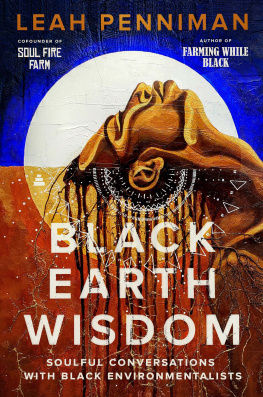

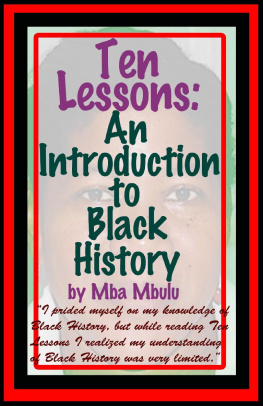
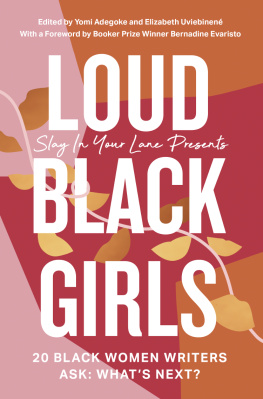
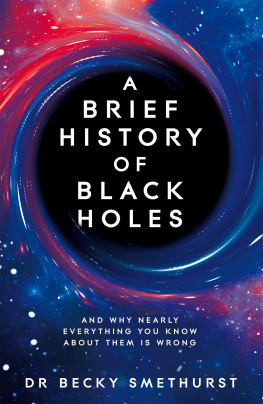
![Bryant Terry - Black Food : Stories, Art, and Recipes from Across the African Diaspora [A Cookbook]](/uploads/posts/book/300359/thumbs/bryant-terry-black-food-stories-art-and.jpg)
